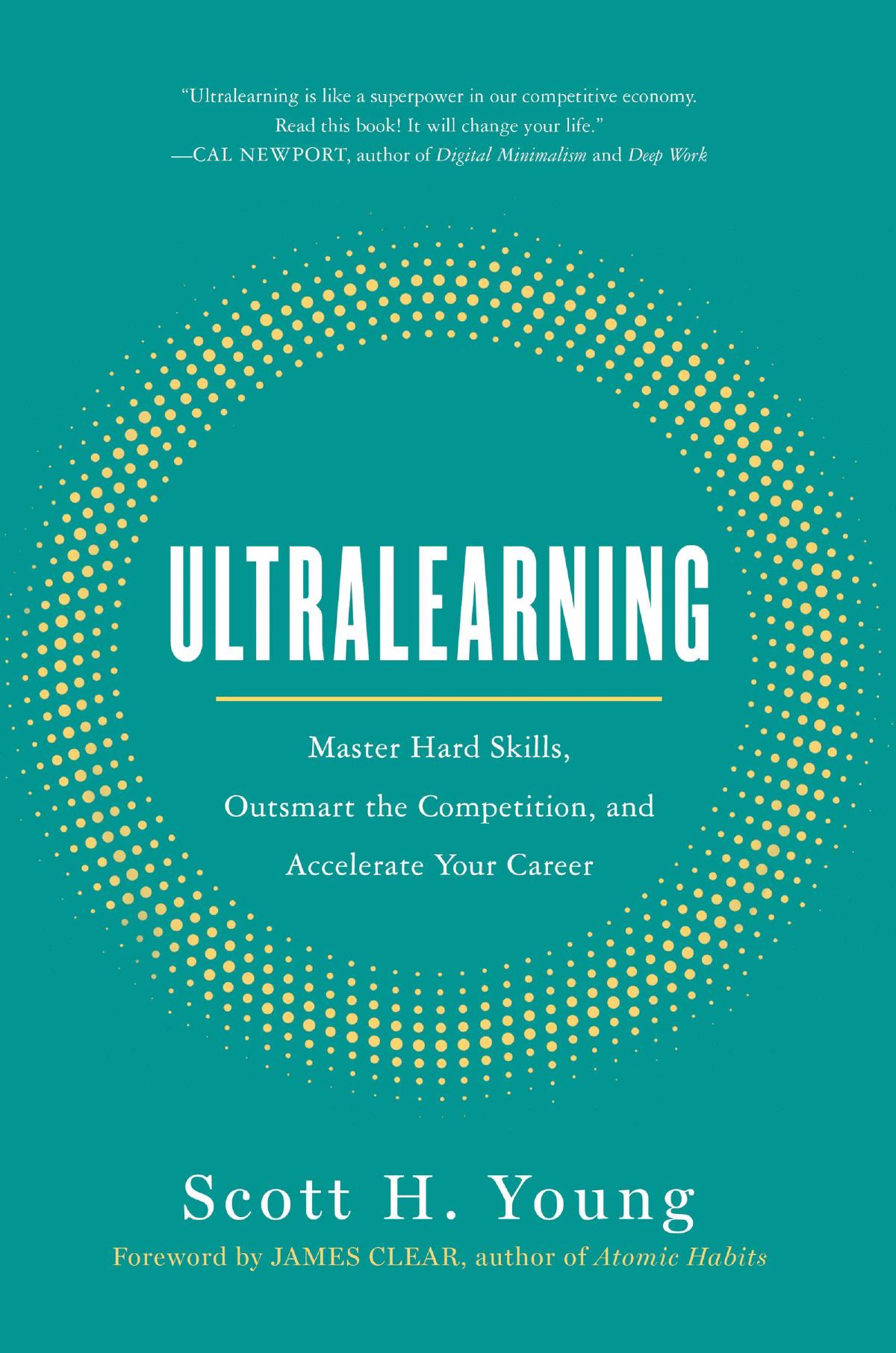In this book the author has analyzed successfull learning projects that seem either extreme or outright impossible such as:
- The entire MIT Computer science undergrad curriculum in one year
- Learning a foreign langauge in 3 months
- Develop a video game all by yourself (stardew valley)
and others.
He found that the following 9 principles are common amongst all of them:
- Meta Learning
- Focus
- Directness
- Drill
- Retrieval
- Feedback
- Retention
- Intuition
- Experimentation
Meta learning #
First draw a map
Why, What and How are the questions you should first answer.
- Why do you want to learn X?
- What do you need to know / be able to do to accomplish X?
- What methods and resources will you use for learning X?
Don’t be afraid to reach out to experts in the field you want to study. Crafting a well formulated email asking for an experts opinion will rarely be ignored and even rarer be meet with anger. Make the email concise and don’t ask for too much, maybe an 15 min call or just the answers to some direct andthought out questions.
For determining what to learn, look at
- Concepts
- Facts
- Procedures
Concepts are things that need to be understood. Facts are things that need to be remembered. Procedures are things that need to be practiced.
Underline the most challenging aspects and think about how to tackle these.
How are you going to learn it? #
Benchmarking - look at the curriculum of a school class when learning academic skills - for non-academic go look online for courses and resources
These will be your defaults.
Then, once you have some ideas about the subject - make some adjustments to these defaults to align with your goals.
How much research should you do? #
Not enough research → bad approaches
Too much research → procastination
Rule of thumb, 10% of the total learning is for research - for longer projects this % will decrease.
Focus #
Sharpen your knife
The hardest part is often to just get started, when you set out to study for 3 hours straight, that is an overwhelming task. If you instead set out to just study for 5 minutes it is easier to get started and then after those 5 minutes you will often find it easier to keep going.
- Try to use the pomodoro technique
- Just get started for 5 minutes, then see if you want to keep going
- Reduce distractions in your envrionment
Directness #
Go straight ahead
Learning in school is often indirect - learning facts and concepts without being able to apply them.
For the most part, if you want to get better at something, e.g. speaking a new language, you will need to start speaking the language even if you feel clumsy and uncomfortable in dong so. Trying to get around this feeling by spending more time in duolingo will not make you a better speaker.
Embracing the struggle and doing the thing you want to get good at even while being terrible at it is the best way to improve.
Project based learning is great for this.
Drill #
Attack your weakest point
Figure out which components make up the skill you want to learn
one example where this is fairly obvious is language learning, there is:
- Vocabulary
- Grammar
- Pronunciation
For other skills it’s less obvious but still possible. Identifying these components can help you find your weak point and then apply deliberate practice to it.
Q: What are the components of programming?
A:
- Design patterns
- Clean Code principles
- Language specific syntax and features
- System Design
- …
Notice that there is a conflict between the principles Drill and Directness. Directness tells you to pratice the entire skill itself. Drills tell you to practice one specific aspect of it. It’s probably best to utilize both with a 80/20 kind of ratio where 80 is directness and 20 is drills.
→ direct then drill
Retrieval #
Test to learn
Many experiments show when studying, reading the text and then recalling the material from memory beats the shit out of just rereading the text.
Students who practice this method of active recall consistently outperform those who simply reread the material over and over to better remember it.
Why do so many students then engage in simply rereading and summarizing the material anyway?
Because it feels better. In rereading the material we get the feeling that we understand it while having to recall the material from memory exposes us to how little we actually remember and/or understand of the subject. This leads to students thinking that they learn better with rereading, because it feels effective - even tho active recall shows much better end results.
Rereading the material is also too easy a task. It does not challenge us enough and does not have “desirable difficulty” - which is required for effective learning.
Feedback #
Don’t dodge the punches
Feedback can both accelerate and slow down the learning process.
Feedback can be harmful if you take it personally - say if someone describes you as lazy and you acceppt this as one of your personality traits and lower your own expectations, this kind of feedback can be harmful. You need to look at feedback objectively, see if it has any merit and if so how can work on improvements?
There is also different kinds of feedback
- Outcome feedback
- Corrective feedback
Retention #
Don’t fill a leaky bucket
- Spread your learning over more periods, don’t pull an all nighter just before the test.
- Figure out what the core principles or informations are then emphasize these more frequently.
Intuition #
Dig deep before building up
- Don’t give up on hard problems, push through
- Explain things to others in your own words to make sure you’ve understood them
- Ask a lot of questions
Experimentation #
Explore outside of your comfort zone
Don’t lose sight of the fact you can’t become a true master of your subject by following the paths trodden by others. Explore possibilities others have not imagined.

